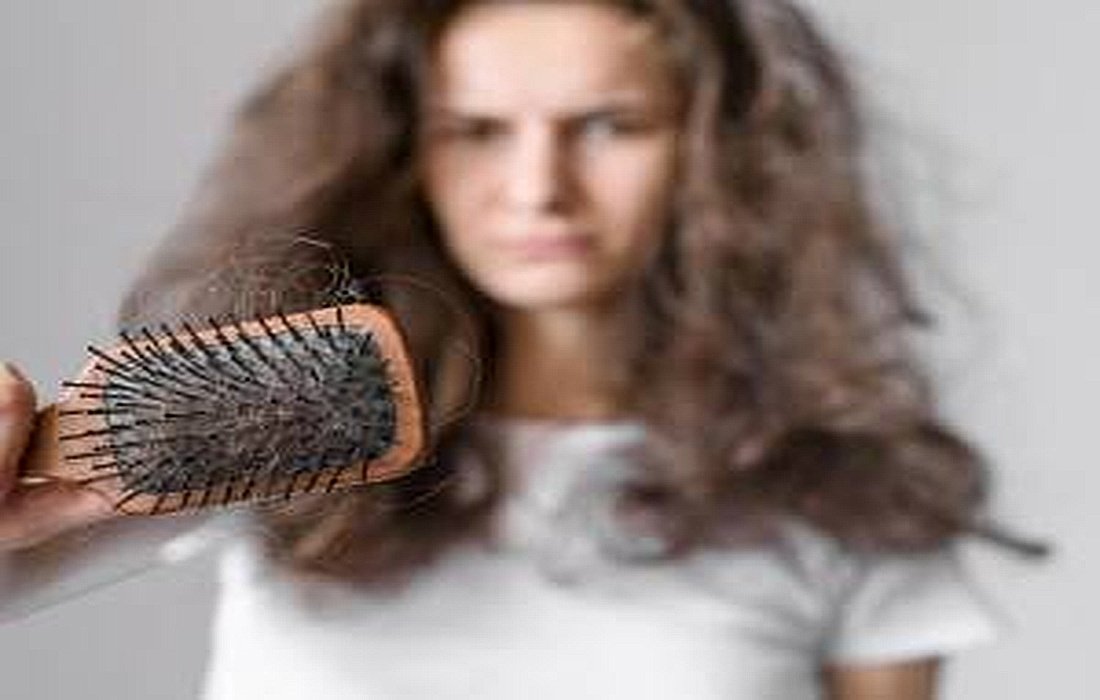Diagnosing Internal Health Conditions Through Hair
Hair exists all over the body, not just on the head. On average, a normal person has about 5 million hair strands. The density and length of hair vary across different body parts, with hair on the head, eyebrows, eyelashes, chin, armpits, and genitalia being longer. The thickness of body hair usually depends on genetics. Some people naturally have fine, light-colored hair, while others have thicker, darker hair.
Body changes can affect the growth, shedding, and thickness of hair on both the head and body. If your body hair suddenly changes, grows faster than usual, or becomes thicker, you should investigate the underlying reasons for this change.
In this section ofSelMagzwe present signs that hair reveals about health.
Signs that hair can indicate about health:
Growth andhair losscan be symptoms of a serious underlying health issue that we will explain:
1. Hormonal Imbalance of Male Hormones
Sudden increases in hair growth or loss in women are often due to an imbalance of male hormones, which can differ between men and women. An increase in testosterone may result in excessive hair growth (hirsutism), mimicking male patterns.Hair patterns
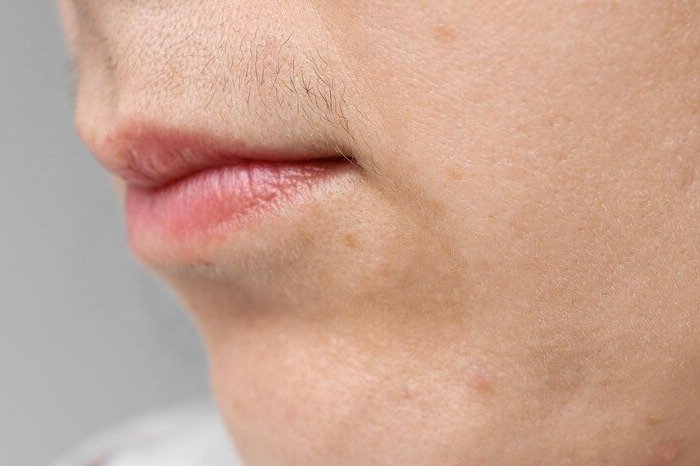
Some women may even experience male-pattern baldness due to hormonal shifts. During menstruation, estrogen levels drop while testosterone rises, leading many women to observe thinning hair while facial hair may become coarser. Although this can be alarming, rest assured that it is a normal physiological response.
2. Polycystic Ovary Syndrome (PCOS)
PCOS is a condition caused by hormonal imbalance affecting about one in ten women, resulting in ovarian problems.3. Skin ProblemsSkin issues like
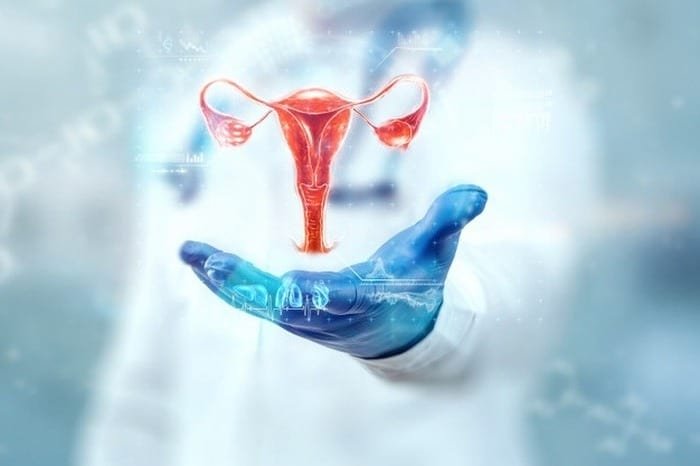
psoriasis
can be seen on the scalp and may affect your hair. Psoriasis is a chronic condition characterized by rapid skin cell growth.4. Excessive Vitamin A IntakeVitamins are essential for the body’s proper functioning, but too much vitamin A can lead to hair loss and other issues such as
dry skinand
dry eyes.5. Iron DeficiencyEveryone experiences a hair growth cycle. Some people naturally shed hair in spring and fall, similar to what’s observed on the head, indicating potentialanemia

or alack of iron
in the blood.Vegetarians, raw food enthusiasts, and women with heavy menstrual cycles are more at risk of experiencing hair loss, brittle nails, and cravings for unhealthy foods. If there’s an iron deficiency, a blood test should be conducted.6. Insufficient ProteinProtein plays a crucial role in hair growth. You should consume about 46-56 grams of protein daily. The body needs protein for hair growth, anda deficiency in protein
can lead to hair thinning.7. InfectionHair loss on the body or head can result from certain infections, such as fungal infections. If you notice unusual hair loss in a specific area of your skin, it might be a fungus. Sebaceous gland infections can also lead to hair loss.
8. Cushing’s Syndrome
Hair loss on the body and head can sometimes occur due to Cushing’s syndrome, which happens when the body produces too much cortisol. Other signs include weight fluctuations, increasedacneand more.

9.
Hypothyroidism
The thyroid is a small, butterfly-shaped gland in the front of the neck that regulates energy use in the body through hormones. When thyroid hormone levels are insufficient, many bodily functions slow down, including hair growth.
The thyroid may manifest issues with hair loss and other symptoms. If you notice more than one-third of your eyebrows thinning and your nails becoming brittle, you might have an autoimmune thyroid condition. A blood test is essential to determine thyroid hormone levels.10. Fluctuating Estrogen LevelsEstrogen levels in the body can also affect hair. When estrogen levels are high, hair tends to be thicker than usual. Conversely, low estrogen levels can result in hair loss. Sudden changes in estrogen levels after pregnancy or stopping birth control pills
can lead to temporary hair loss.11. Changes in DietYour food choices play a significant role in your hair changes. If you can’t find a medical reason for your hair changes, switch your diet to include more fruits, vegetables, and proteins.
12. Poor Genetics
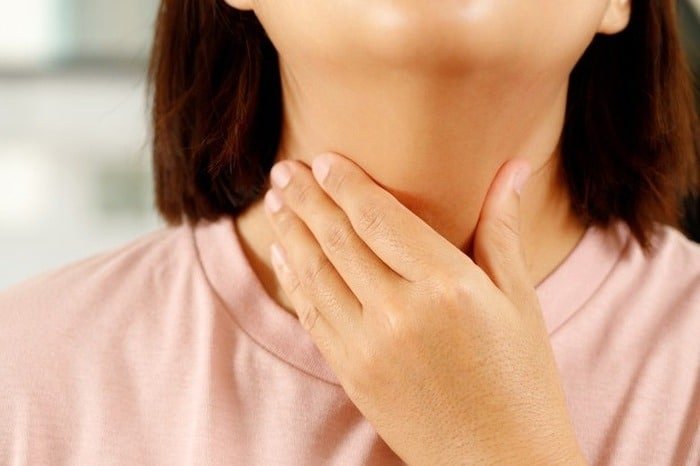
Early hair loss may be due to genetics. In this case, consult a dermatologist for appropriate solutions.
13. Side Effects of Medications
Certain medications can have direct effects on body hair. For instance, antidepressants and blood thinners can cause temporary hair loss, often after significant events like pregnancy, major surgeries,rapid weight lossand extreme stress.
Some medications can lead to increased body hair. For example, testosterone drugs, danazol, phenytoin, and glucocorticoids (a type of steroid) can cause this. In many cases, hair changes are not permanent and resolve once the medications are ceased.
14. Autoimmune Issues

This is a rare issue, but specific autoimmune conditions can attack the immune system, impacting hair follicles and leading to hair loss, including alopecia, affecting typically both scalp and eyebrow hair. These conditions are often treated with systemic steroids, and hair regrowth usually begins.
15. Spending Excessive Time in the Sun
Sun exposure can weaken and dull hair, while ultraviolet rays may lighten it. Too much sun can cause dryness and brittleness in hair.
16. Mental Health DisordersIf you notice changes in your hair, it could indicate a mental health issue. Angerand high stress can lead to gray hair or temporary hair loss from the scalp and body.17. Possible TumorIn rare cases, if hirsutism occurs suddenly, such as with a significant rise in testosterone and DHEAS levels within six months, there might be a tumor releasing male hormones. This can impact other hormones related to hair growth. Such tumors may stem from endocrine glands or ovaries, and sometimes both. While this occurrence is uncommon, the risk remains.When Should You See a Doctor About Body Hair?Changes in body hair may indicate potential health issues, but this isn’t always the case.
Doctors have noted:
Most people experiencing body and head hair growth likely do not have any health problems, and these occurrences are often natural. However, if you notice a completely new and sudden change and feel uncomfortable with excessive hair on your face, shoulders, or chest, consult a dermatologist.
Causes of Thinning Hair
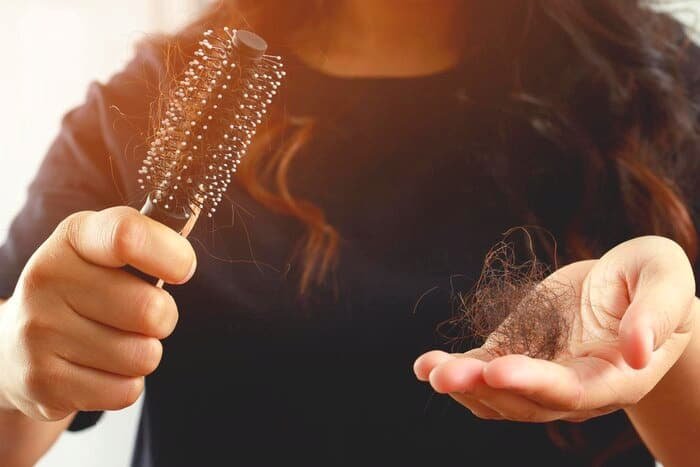
women’s health issues
male hormone
excessive male hormone growth
polycystic ovary syndromePCOSvitamin A
excessive vitamin A consumption
protein
protein deficiency
hypothyroidism
effects of hypothyroidism
diet



